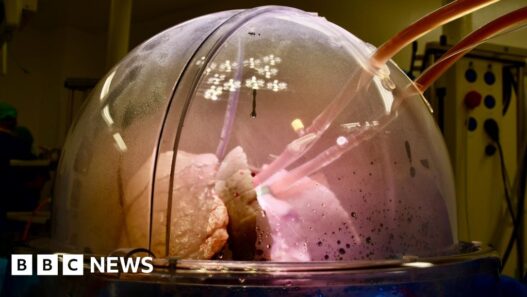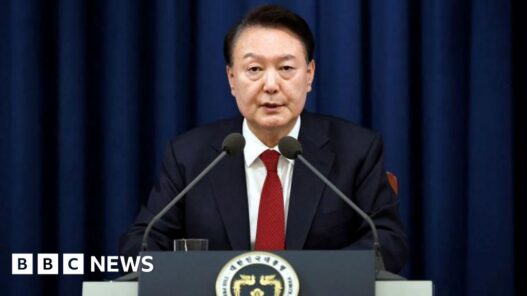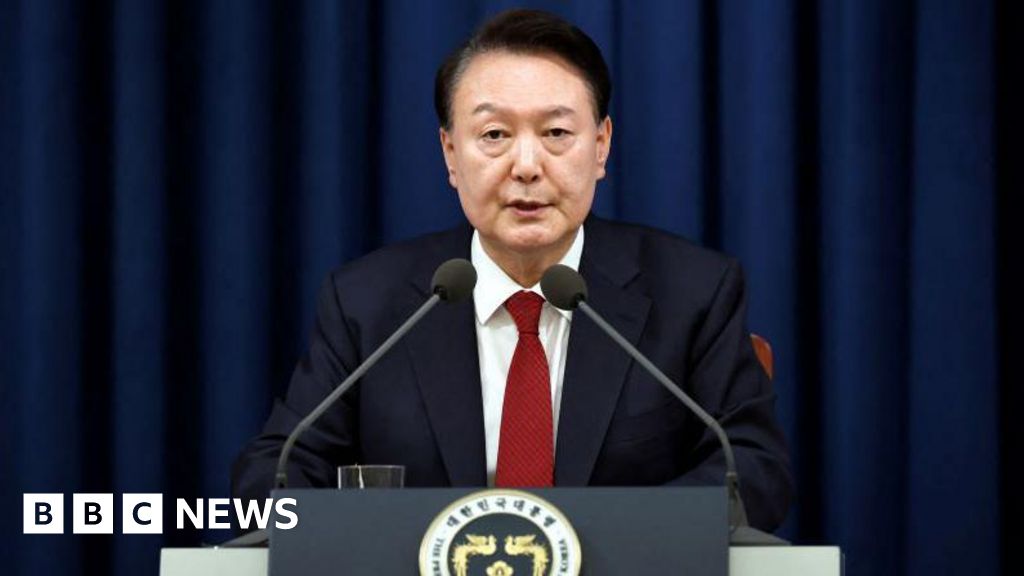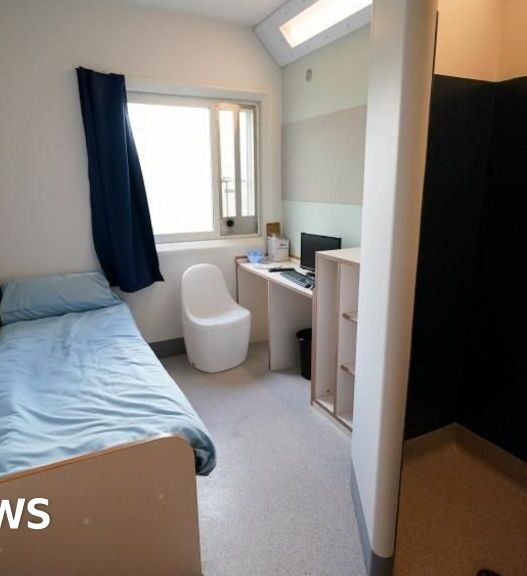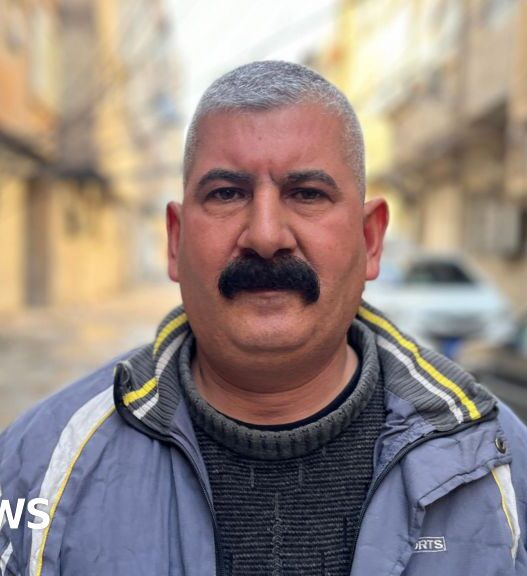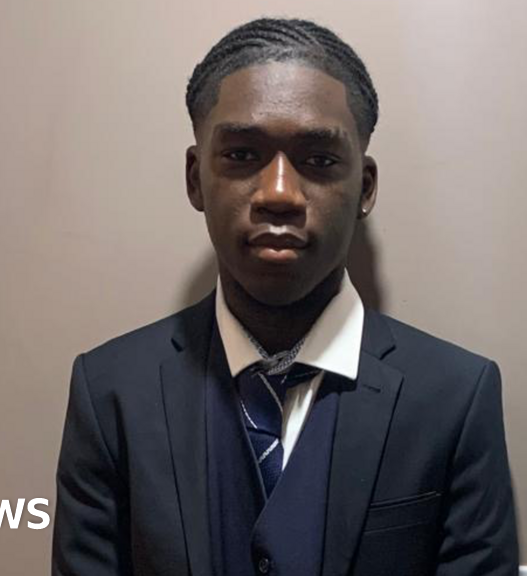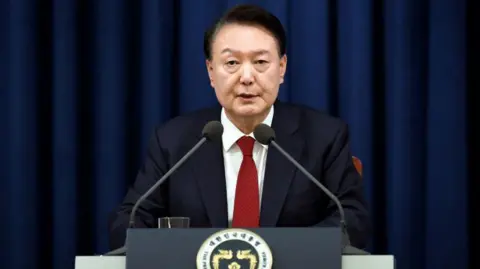 Reuters
ReutersPolice in South Korea raided the presidential office in Seoul, following President Yeon Suk-yeol’s failed attempt to impose martial law last week.
The raids are the latest development in a turbulent week in South Korean politics.
President Yoon, who has remained in office despite the impeachment vote and multiple calls for him to step down, faces multiple investigations from various branches of government, on charges of rebellion and treason.
Meanwhile, former Defense Minister Kim Young-hyun, who took charge of declaring martial law, attempted suicide while in detention on Tuesday evening, an official said.
The ministry told Parliament that Kim is currently being held in a guard room and “does not currently suffer from health problems.”
He was arrested on Sunday.
Several officials close to Yoon also resigned following the short-lived declaration of martial law.
The country is now experiencing a state of political volatility.
Ruling party deputies agreed to boycott the vote to remove Yoon as president after he agreed to shorten his term and not interfere in foreign and internal affairs.
However, the opposition Democratic Party, which controls the majority in parliament, criticized the agreement, with parliamentary leader Park Chan-dae calling it “a second illegal and unconstitutional rebellion and a second coup.”
It is unclear what power, if any, Yoon has now, and protesters are still in the streets calling for him to step down.
“The pressure on Yoon is increasing.”
Local media reported that 18 investigators were sent to the presidential office on Wednesday to seize records related to the Cabinet meeting held the night martial law was declared.
President Yoon, who was among the suspects listed in the search warrant, was not in his office when the raids took place.
Experts say this shows that the authorities are increasing pressure on the president and his allies.
“The raids mean the pace of investigations is accelerating, including those related to Yeon,” Mason Ritchie, an assistant professor at Hankuk University of Foreign Studies in Seoul, told the BBC.
“Given what we think we know so far, Yoon will likely be impeached sooner rather than later. Whether before or after, he will also likely face arrest, interrogation, and eventually charges of rebellion.”
“The situation remains fluid,” Professor Ritchie added.
The last time the president’s office was searched was in December 2019 due to corruption accusations against the former vice mayor of Busan. The prosecution did not enter the office grounds at that time, but the materials were delivered by the office, according to protocol.
At the time, the country was ruled by former President Moon Jae-in, and Yoon only took office in 2022.
Additional reporting by Tessa Wong


